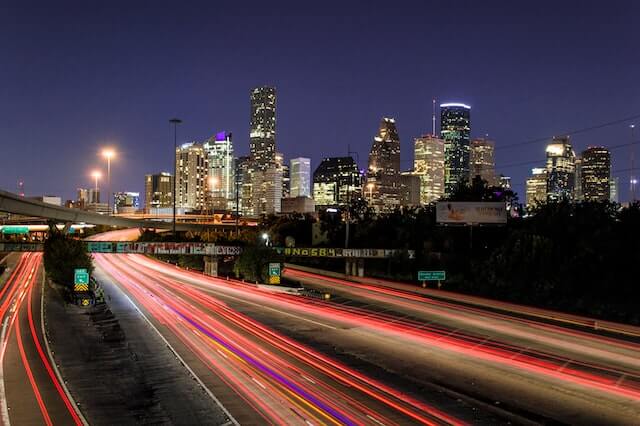Whether you’re a digital nomad or you’re just working from home, finding the right remote work location for you can change the way work.
This is increasingly clear with changes in travel laws and accommodations like digital nomad visas. Such changes are making it more attractive for people to work from anywhere in the world. So where would you like to go?
Spain, Thailand, Serbia? Or maybe you’d just like to try out some new locations in your hometown?
In this article, we’ll cover some of the best remote work locations in the world, as well as some great spots to try locally. You can be a globetrotter or even discover your local attractions while getting your paycheck. You can be a traveling nomad and a career person. You can get it all!
Best Remote Work Locations Around The World
With a laptop, good connection, your smartphone, and different kinds of software, anything is possible. As a remote worker, you can work from virtually anywhere in the world, that’s true. But, there are some places that support remote working more than others.
Below is the list of cities we believe offer the best environment for remote workers. We’ve based these on different characteristics including internet and connectivity, the standard of living, safety, living costs, and openness. Each city is a popular remote work location for a unique reason and what might attract one worker may repel another.
Without further ado, here are some of the top-rated cities for remote work that we recommend.
Lisbon, Portugal
Lisbon has some pretty great positives for remote work employees looking for a place to settle.
Other than the stunning sights and even better weather of the city, it is very pro-digital and pro-remote. It has swift internet speeds, promises security and safety for foreign nationals, and can be accessed using a digital nomad visa.
Accommodation is relatively affordable but the overall cost of living is a bit pricey, averaging close to $2000 a month.
Tallinn, Estonia
Estonia is one of many countries that have introduced visas for digital nomads or remote workers. This visa allows these people to live in Estonia for up to a year doing remote work.
The capital city of Estonia, Tallinn, is the perfect place to settle in if you’re attracted by this one-year remote working offer. It is a stunning city with a vintage charm about it, yet it also has a thriving digital climate and booming economy.
To support what is clearly a digital push by the Estonian government, almost all public services in the city are available online. Internet connectivity is widely accessible and you’ll be able to do your work without issues.
The cost of living in Tallinn is cheaper than 64% of cities in the world. For a single person, the cost of living averages around $1400.
Chiang Mai, Thailand
If this isn’t your first time looking into living as a digital nomad, then you’ve probably heard or read about Chiang Mai.
This Thai city is a must-live for remote workers because it has all you’ll ever need to do your job comfortably. It is extremely affordable to live in, offers easy and up-to-9-month visa access, has great internet accessibility, and provides endless cheap rentals.
With an extremely affordable average cost of living of around $850, you can live comfortably and still enjoy the city’s (and country’s) culture.
The lovely thing about Chiang Mai’s popularity with remote workers and Thailand’s reputation as a tourist destination is that you’ll have diverse experiences to jot down in your travel journal. Plus, you’ll get to mingle with other nomads in the remote worker community.
Tbilisi, Georgia
Thinking of working from the U.S? Well, it might not be the first place you would think of when thinking about America, but Tbilisi is ideal for digital workers. The State of Georgia introduced a digital worker visa to adapt to the Coronavirus pandemic. The aim of the visa was to attract people to the state and make it possible for them to relocate during the pandemic’s tough conditions.
Tbilisi has embraced these moves by the State, creating a space that invites and supports remote workers. Nestled in beautiful mountains and coasts, you can find a diverse range of coworking offices and cafes that cater primarily to remote working.
Living costs also favor remote workers at about $1050 a month, with the average affordable rent in the city ranging from three to four hundred dollars. The internet speed is a tad below average though at about 15 Mbps.
Tbilisi is a growing remote working hub that gives you a chance to be part of an expanding community of digital employees. But it is important to note that the city isn’t very inclusive. It has a history of discrimination against racial and sexual minorities.
Belgrade, Serbia
Low living costs are the real pull of working in Belgrade. Compared to some of the other locations on this list, Belgrade has pretty cheap accommodation and a low monthly living cost. As with the other cities we’ve mentioned, internet connectivity is pretty good here and you can access coworking offices for about $100 a month.
As a well-known but not too big city, Belgrade is quaint and full of history, while still providing many opportunities to meet new people and discover interesting and vibrant cultures. It’s a traveling worker’s paradise.
Cape Town, South Africa
Cape Town is a breathtaking city in South Africa, renowned for its spectacular views, mountain range, and beaches. This makes it a popular tourist spot with adventure activities including surfing, hiking, underwater cage diving, and more. But it isn’t just the city’s natural offerings that draw people to Cape Town.
The city is an architectural and cultural gem with museums and arts haunts scattered all over. It has a rich history to discover, accompanied by a bustling urban nightlife, and booming culinary culture. You can enjoy fine dining and street food on one day and an array of indigenous dishes or braai on the next.
So, on the tourist/travel side, Cape Town is definitely the place to be. But what about remote working conditions? Well, the biggest plus on this front is mobile workspaces. The city has plenty of cafes and restaurants that are open to remote workers and offer good wifi.
Other conditions, however, are pretty average compared to other places on our list. Internet speed can be slow and the cost of living is pretty high. Accommodation can be pricey, especially close to the city center. Another huge issue to consider is South Africa’s rolling blackouts known as loadshedding which can interrupt your remote workflow.
Bali, Indonesia
If you’re looking for vibrant, culturally rich, and invigorating travel experiences then you definitely can’t miss Bali. This Indonesian province is popular for its amazing experiences for travelers including pulsing nightlife, deeply religious and spiritual centers, a fantastic culinary community, and more.
The fact that Bali is a popular travel destination means it is made to cater to tourist and traveler needs. Because of this, you won’t struggle with working needs like wifi, finding remote working spaces, or accessing digital devices.
On the other side of this, there can be intense competition for affordable accommodation since tourists are also looking for places to stay. Despite this, you can still find a comfortable home in the area for as little as $200 a month and you may get lovely views of rice terraces and beaches to boot. The general living cost could see you forking out about $500 monthly.
Madeira, Portugal
Here’s another Portuguese city on our list: Madeira. As mentioned before (see Lisbon), Portugal has a digital nomad visa aimed at inviting digital and remote workers to the country. This applies to Madeira too, an archipelago off the coast of Africa with a draw for expats.
In addition to being open to foreign nationals, the city has ideal remote working conditions including 25 Mb per second internet and a relaxed, remote environment that makes focusing easy. It is, however, on the higher end of the cost of living.
Mexico City, Mexico
If you’re looking for a true urban, inner-city South American experience then Mexico City is the place to be. We have to give you this warning though: this capital city isn’t all beaches and super hot weather as TV makes people think all of Mexico is. Rather, the city is an inland location with a relatively balmy climate.
As Mexico’s capital, Mexico City is super busy with a variety of activities, experiences, and cultural touchpoints for visitors. It supports easy movement with an effective metro system and woman-friendly cabs.
It even has a wonderful LGBTQIA+ culture, making it a safe and inclusive option for remote workers. Internet? Accommodation? Living costs? Yup, Mexico City ticks all the right boxes and constantly makes the list for digital nomad cities.
Buenos Aires, Argentina
Another South American remote work location to consider is Argentina’s Buenos Aires. Even before the Coronavirus popularized remote working, Buenos Aires was creating space for digital nomads. The city is a popular space for start-ups encouraged by supportive government accelerator programs.
This has a direct impact on factors like decent internet speed and connectivity, digital infrastructure, simple dollar conversions, etc. It also has a variety of coworking spaces at +/- $100 per month and strong cafe culture, so you’ll always have a sweet spot to work from.
Other pluses include affordable accommodation and visitor-friendly travel legislation and great cultural travel spots like the Buenos Aires Museum of Latin American Art (MALBA). The cost of living in Buenos Aires averages around $1300.
Berlin, Germany
Everybody knows Berlin as the center of German life. It’s an artist hotspot with a mixed tourist and immigrant community- the perfect mix for creative digital workers looking to find a fresh location to work from. Plus, anyone can tell you that Germany has one of the most secure and highest living standards in Europe.
Interested in living in Berlin? Check out Germany’s freelancing visa, Frierberufler, which allows remote workers and freelancers to move to the country long term.
Ljubljana, Slovenia
Hard to say but not so hard to live in, Ljubljana is perfectly primed for at-home work. The cost of living would cut you back around $1500 a month and you’re guaranteed convenient and high-speed internet of around 50 Mbps.
You’re also located right in the center of some amazing European countries. You can indulge in Italy’s sultry offerings on one day and travel to other-worldly Croatian beaches on another. In Slovenia itself, you can drive from the city into the picturesque countryside. It’s a traveler’s dream.
Hanoi, Vietnam
If one of the reasons why you want to explore a new location for remote working is food, then you have to put Hanoi at the top of your list. Everybody’s gotta eat and where better than in one of the many restaurants or street food spots offered by this Vietnamese capital? You could even eat while you work in one of Hanoi’s remote-friendly coffee shops or co-working spaces.
Other than great dishes, you can also enjoy Vietnam’s historical and cultural sites like the Temple of Literature. Accommodation isn’t too hard to come by as well and there is an intensely diverse digital worker community.
London, United Kingdom
It’s definitely on the pricier end of our remote work location choices, but we couldn’t leave London out. The UK economic hub is known for its diverse expat community with people moving to the city from all over the world.
The fact that it is a well-established melting pot makes it relatively tolerant and safe in comparison to other locations. It also makes for a food adventure as you can experience tons of immigrant delicacies.
This diversity and the opportunity to visit classic landmarks and points of history pull many to the city, in addition to broad career opportunities.
But, as we said, it is a costly place to live with the average monthly cost of living at over $4200. This is far higher than other remote work location living costs, we admit, but at least the speedy internet connection can make up for it.
Other remote work locations you can research are:
- Vancouver, Canada
- Reykjavik, Iceland
- Saint Petersburg, Russia
- Perth, Australia
- The Canary Islands, Spain
- Bridgetown, Barbados
- Taipei, Taiwan
- Taipei, Taiwan
- Toronto, Canada
- Wellington, New Zealand
- Auckland, New Zealand
- Helsinki, Finland
- Svalbard, Norway
- Tenerife, Spain
- Ko Pha Ngan, Thailand
- Madrid, Spain
Best Remote Work Locations In Your City
Of course, you could just work from home in the literal way- on your couch, at your home office, or even from bed. But, if you want to explore a new city or even your local surroundings right now, these are some remote work locations that will help with your productivity:
Cafe Or Coffee Shop
Cafes, coffee shops, and quiet restaurants are popular mobile offices for remote workers. You can step into one wherever you are just to attend a video conference or find a quick space to sit down and type up a document or email. Or you can literally nest into a table or booth for your whole day, using the space and free wifi as you would in a traditional office space.
Most coffee shops today offer wifi and plug points and cater specifically to remote workers on weekdays so you’ll be well-supported in your productivity.
Cost: Most cafes simply want you to get something from their menu. A simple latte could get you an office space for an entire day.
Library
If you want the guarantee of a quiet space with no baristas calling out orders, then a local, public library may be a better option.
In a library, you can work with no interruptions and no noise. Some, but not all, libraries may even offer internet connection and open access desktop computers. Depending on your line of work, using a library as a remote work location may even benefit your research or final product itself.
Cost: Generally free or low-cost.
Shared or Co-Working Spaces
Co-working spaces are becoming increasingly popular, especially in cities like the ones we’ve listed that try to attract digital nomads.
In a co-working space, you can get access to office facilities like your own desk space, boardrooms or private meeting rooms, wifi, and even laptops and other devices when requested. Most co-working spaces also have lunchrooms or canteens where you can get your lunch and chat with other users.
These shared spaces reduce some of the isolation and solitude that can manifest when working remotely. You can meet other remote workers in your neighborhood and create a community to support you in your work. Interacting with others can impact your productivity positively as the engagements can be a source of inspiration and motivation.
But, you also aren’t forced to engage as everyone is there to work and you aren’t colleagues, after all. It strikes a lovely balance between the social and the professional. You’re also guaranteed safety and security as the space is designed with remote employees in mind.
Cost: These are paid spaces that range in price depending on the service provider, location, facilities, etc. On average, most co-working spaces charge around $100 per month.
Public parks/outdoor spaces
This one is a bit unconventional but hear us out. We’re not suggesting you whip out your thousand-dollar laptop in a public park. That sounds far from safe.
But, there are little tasks you can complete while enjoying everything nature has on offer. For example, you can field calls, read some documents, respond to emails on your smartphone, and more.
This option adds some variety to your day and gives you a chance to explore different outdoor spots in a remote work location. Consider peaceful or quiet spots like small parks, zoos, nurseries, secluded beaches, hiking spots, etc. Of course, you’ll have to consider the issue of internet connection wherever you decide.
Cost: Free/depending on entrance fees for the space chosen.
Community Halls
Similar to libraries, public or community halls or community centers can be a good place to work. They often have a decent and free internet connection and seating areas. They also tend to be conveniently located close to shops, restaurants, and other spaces you might need.
The downside? Activities and other visitors may make it a bit noisy but this could be a plus as you can really immerse yourself in the community’s happenings.
Cost: Generally free.
Conclusion
Digital nomads are becoming a standard part of cities all over the world, establishing remote working communities and cultures. You can take advantage of this to add more stamps to your passport without having to take a break from work.
Any city on this list would be a fantastic place to drop your bags and anchor yourself for a few months or a year. And you can find free and paid remote work office spaces like libraries and cafes in all these cities or wherever you are now.
Has taking control of your time and life ever been easier?





